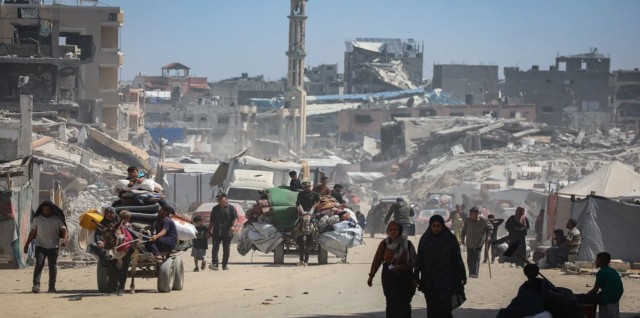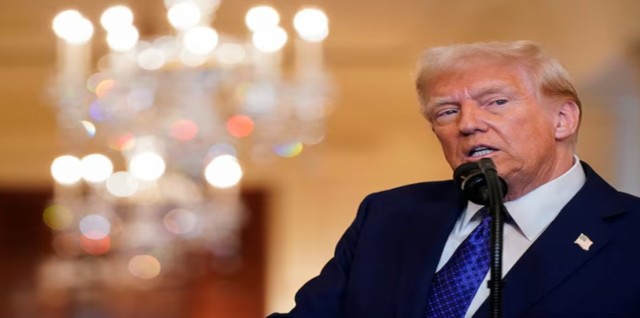
French Prime Minister Gabriel Attal arrived in Paris on Sunday to formally announce his resignation in light of the recent election results.
France faced a pivotal moment in its political landscape after Sunday's elections resulted in a parliament without a clear majority, setting the stage for uncertainty and potential gridlock. In a surprising turn, a coalition of leftist parties emerged as the leading force, eclipsing Marine Le Pen's National Rally, which had been expected to perform better. President Emmanuel Macron's centrist agenda also suffered setbacks, complicating efforts to govern effectively and undermining France's position in Europe.
The election outcome underscored deep divisions among voters, reflecting dissatisfaction with economic policies, social issues, and national identity. The National Assembly, France's legislative body, now stands divided among left-wing, centrist, and far-right factions, each with distinct policy agendas and little history of cooperation.
The leftist New Popular Front (NFP) alliance swiftly expressed its desire to take the reins of government, emphasizing popular mandate and advocating for policies such as price controls on essential goods, higher minimum wages, and increased taxes on the wealthy. Leader Jean-Luc Mélenchon called for the president to respect the will of the people and extend an invitation to govern.
Marine Le Pen's National Rally, despite efforts to distance itself from past controversies, faced disappointment as it slipped to third place in the election standings. The party, known for its nationalist stance, continues to polarize French society despite gaining ground in recent years.
Election night in Paris was marked by emotional scenes at leftist gatherings, where supporters celebrated their unexpected surge with cheers and tears. The atmosphere at République square was festive, with drums beating and chants of victory echoing through the crowd.
However, the leftist alliance, hastily formed between hard-left, Green, and Socialist factions, fell short of securing an outright majority in the 577-seat assembly. As official results trickled in, projections indicated a fragmented parliament with the left expected to secure between 184 to 198 seats, Macron's centrists between 160 to 169 seats, and the RN and its allies between 135 to 143 seats.
Prime Minister Gabriel Attal announced his resignation following the election results, signaling the start of a transition period. In France's political structure, the prime minister heads the government while the president holds the highest office. If aligned politically, they can wield significant influence; however, in cases of opposing parties, known as "cohabitation," power-sharing can lead to challenges and compromises.
President Macron's office stated that decisions regarding the formation of a new government would await the organization of the new National Assembly. While the constitution does not mandate inviting the largest parliamentary group to form a government, it is a customary step in French politics.
Marine Le Pen, undeterred by the setback, expressed confidence that the National Rally's vision for France had merely been delayed. The party's strategic alliances and campaign efforts were aimed at consolidating support and countering coalition tactics designed to block its ascendance to power.
The election highlighted voter dissatisfaction with Macron's administration, citing concerns over rising living costs, strained public services, immigration policies, and national security. The ballot reflected a broader sentiment among the electorate seeking change and clarity in governance.















